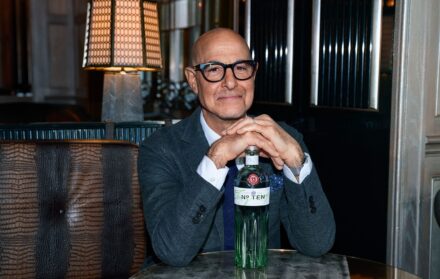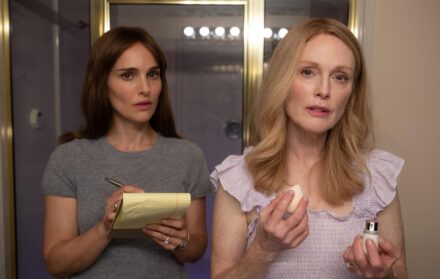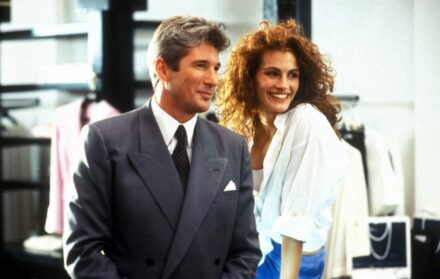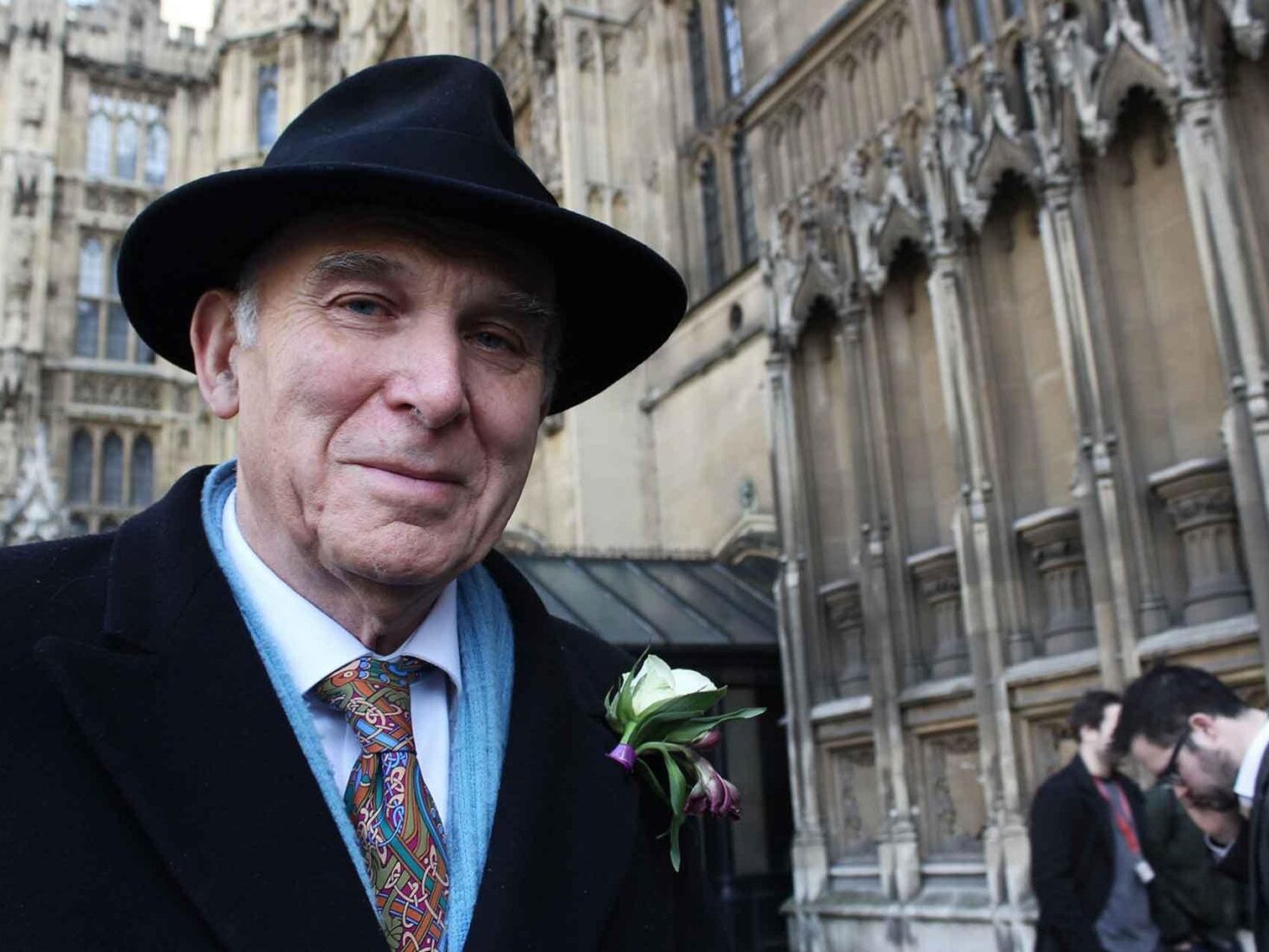
Lib Dem Leader Vince Cable On Brexit Britain
"British democracy is clearly in serious trouble"
In today’s divided and highly toxic political climate, Sir Vince Cable is mercifully rational. Assuming leadership of the Liberal Democrats in July 2017, Cable’s résumé includes working as an economic adviser to the Kenyan Government from 1966-68, and for Shell in the mid-90s as chief economist.
His political career has been no less distinguished – defecting to the newly-formed Social Democratic Party in 1982, Cable has since served as Lib Dem deputy leader, Treasury Spokesperson and Secretary of State for Business, Innovation and Skills in the Cameron-Clegg coalition government. He joined the Commons in 1997 as MP for Twickenham, a seat he regained in the June 2017 snap election.
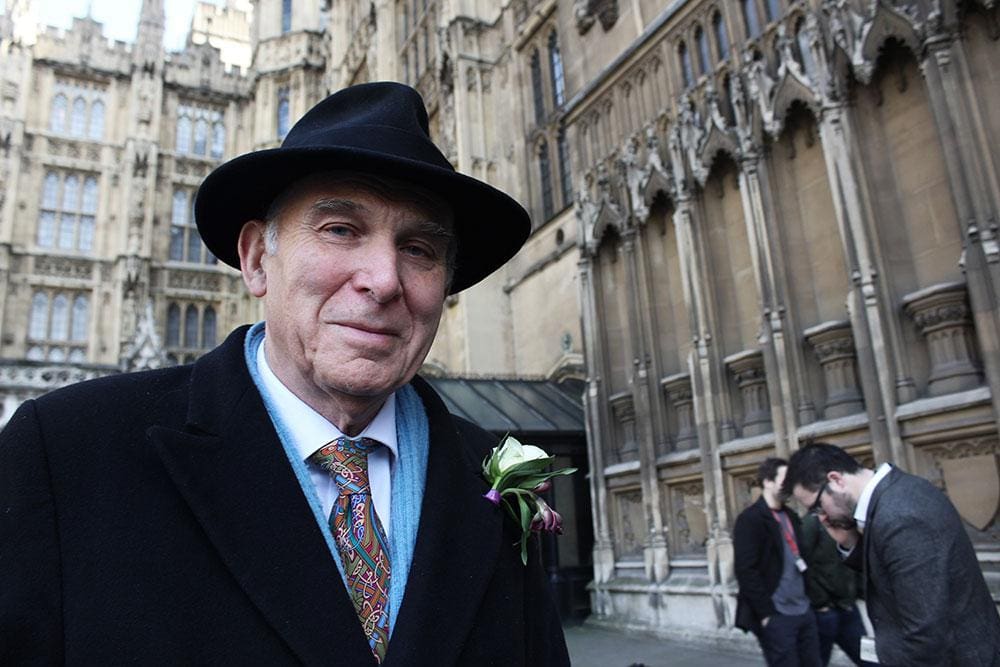
Yet for a time it seemed that Cable had left politics entirely. Following his defeat in the 2015 election, Cable was apparently enjoying a productive retirement, writing books, taking up academic posts and working to get a community bank off the ground. “I lost my seat in 2015 for a very simple reason; the scaremongering campaign by the Conservatives, supported by the Murdoch press, that the electorate would get hardline socialism in a coalition between Ed Miliband and the SNP if the Conservatives lost,” says Cable.
Cable hadn’t reckoned on a snap election. The local party wanted him to stand again on the grounds that he had “brand value”. He says that returning to politics “wasn’t totally free of hard choices,” but there is a sense he is up for the challenge, particularly at a time of especially partisan politics. Moreover, his own popularity within the party is rock solid – Cable was appointed party leader in July 2017 without any internal conflict. So why return to politics now, at a time when electoral support is at a record low? In June 2017 the Lib Dems managed to gain a few seats – currently a dozen – but their vote share was a shameful 7.4 per cent compared with 23 per cent in the 2010 general election, when they won 57 seats. Many have suggested that Nick Clegg’s infamous tuition fee U-turn was the beginning of the end for the party.
“The tuition fee issue has been overstated by the media – what is clear is that party support fell almost immediately after we formed the coalition; the tuition fee issue came later, resulting in a loss of trust and so on, but that wasn’t the key reason for the loss of support,” argues Cable.
A key figure in the 2010 coalition talks, particularly the unsuccessful negotiations with Labour, Cable observes that the Cameron–Clegg coalition was “a good thing for the country, but bad for the party.” Indeed, just weeks into the newly-formed government, support levels for the Lib Dems collapsed, a testament, Cable argues, to the inherent tribalism of British politics. “Members of the electorate never forgave us for working with the Tories, but it’s equally fair to say that we stopped some bad legislation going through, and achieved a lot in the national interest. The political price we paid, however, was dear.”
I can’t dispel the feeling that Cable might have bitten off more than he can chew. However, he is optimistic that the party is ready to take on the massive problems facing the UK, and will play an important role in the political landscape over the coming years. “The party has record membership, which is bigger than the Tory party and, crucially, we have party unity,” he says. “There is a massive schism in the Labour and Conservative parties. The only reason they don’t split is because of the first-past-the-post system, which is deeply unhelpful to schismatic groups. But in essence, they hate each other – I’m leading a focused, competent, balanced team. We always do well at by-elections; what we need to do is upgrade our public opinion rating before the next general election.”
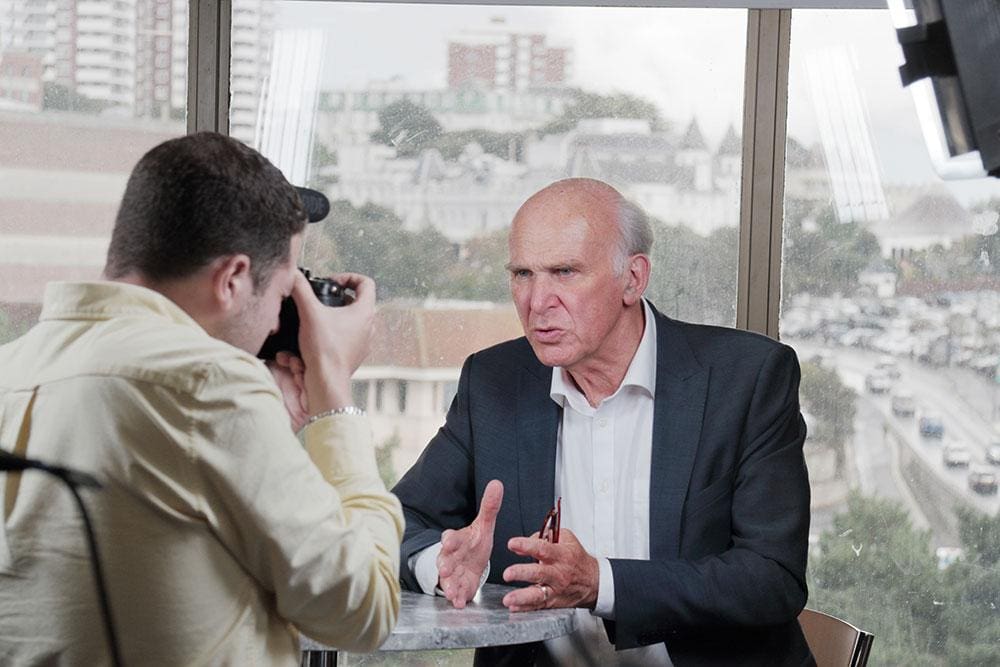
Cable is also at pains to avoid the mistakes of his predecessor, Tim Farron, whose refusal to clarify his position on gay marriage is widely believed to have done considerable damage to the party’s image. “Farron clearly didn’t distinguish between his religious convictions and his role as the leader of the Liberal Democratic party, defending gay rights – he put himself in an untenable position,” he concedes.
At this point in our conversation, I’m starting to feel a little disconcerted. Sitting in the Royal Over Seas League building in St James’s, there is something deeply ‘unpolitical’ about the man. Where is the spin? Every question is answered directly; nothing is dodged. Indeed, after our conversation, Cable proceeds to answer a series of questions from guests at The London Grill Club, an informal Q&A session organised by David Selves. A successful hotelier and charity auctioneer, Selves initially started the club as part of the London Press Club’s programme of events. However, with the potential sensitivity of issues and guests, The London Grill Club is now an entity in its own right with no political or industry allegiances.
“We need to get the positive messages out there,” Cable explains to the group, in reference to his willingness to return to the media spotlight. A consummate diplomat, Cable is also not afraid of ruffling feathers – he likened Theresa May’s attack on the global elite, which she called the rootless “citizens of nowhere”, to the language used in Mein Kampf, later suggesting to BBC presenter Andrew Marr that “Brexit may never happen”. I ask Cable if the media are correct in their analysis regarding May’s “weak and ineffectual leadership” – the Conservative party’s internal divisions have been well-documented. “After the election, commentators were predicting a quick death for her leadership, but I’ve always believed she would be with us for a few more years,” notes Cable.
“The party’s problems are caused by a mixture of clashes of ideology and personal ambition; there is a big difference between people who believe in maximum Brexit and people like [Philip] Hammond who want to minimise the damage. It’s a pretty unappetising cocktail of stuff, although if they sit down and think rationally, they’ll realise that they have to stick with May until Brexit is completed.”
Incidentally, at the time of writing May is 61, while Cable is 75. So it’s an obvious but inevitable question – how does he respond to criticism that he’s simply too old to lead the party? “Roger Federer was asked the same question – his response that ‘age is just a number’ pretty much sums up my feelings,” laughs Cable. “Moreover, part of our core vote is young people and the idea that young people only want young politicians is absurd. I’ve visited several campuses recently and the response has been very enthusiastic, despite the Clegg tuition fee hangover.” Unsurprisingly, Cable is in favour of reducing the voting age across England and Wales to 16, noting that in Scotland, political sophistication among young people is “very high”.
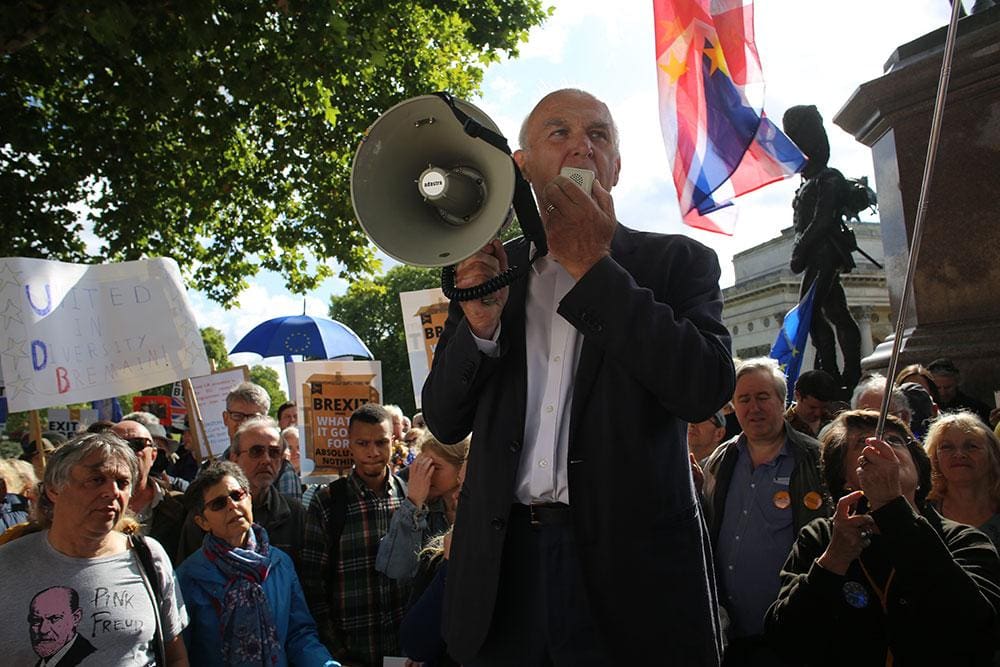
“British democracy is clearly in serious trouble – we have an elected house that produces very strange outcomes and a second chamber of appointed politicians who don’t represent anybody,” says Cable. “I’m also in favour of reforming the party funding system and further devolution of powers to local government,” he adds.
Of course, his overriding focus today is Brexit, and campaigning for a second referendum on the final exit deal reached between the government and Brussels. “If Parliament decides that the final deal is bad for the UK and rejects it unilaterally without a public mandate, I think there would be a massive backlash,” he argues. “I’m actually not generally in favour of referendums and deciding complex issues via binary choices, but the public do need a say on whatever deal we end up with.”
He adds that the idea of voter fatigue is “a nonsense”, believing that the public want a second chance to clarify their feelings on the most divisive issue for a generation. “The real tragedy of Brexit,” says Cable, “is that it was a case of the old shafting the young, over-65s voting with nostalgia for a Great Britain that is long gone.” Cable believes that Nigel Farage never expected to win, and notes that David Cameron and George Osborne fought the campaign in 2016 in “a highly complacent way”.
The Lib Dem leader has also been highly critical of Labour’s response to the debate, criticising Jeremy Corbyn for “sitting on his hands,” and offering no challenge to the government’s handling of the negotiations. “Labour, or at least Corbyn’s inner circle, is not trying to sabotage Brexit because of his historical views on the EU as a force for bad – a capitalist club trying to prevent Corbyn’s vision of a much-enlarged state taking back control in the UK. It’s an unholy alliance between the right and left.”
Perhaps Cable’s biggest regret is Brexit’s ability to blind the government and electorate to more pressing issues facing the UK. “Brexit is sucking the life out of government and Parliament,” he observes. “Major issues like housing, healthcare, pension reform and industrial strategy are all being parked, which is regrettable to say the least.”

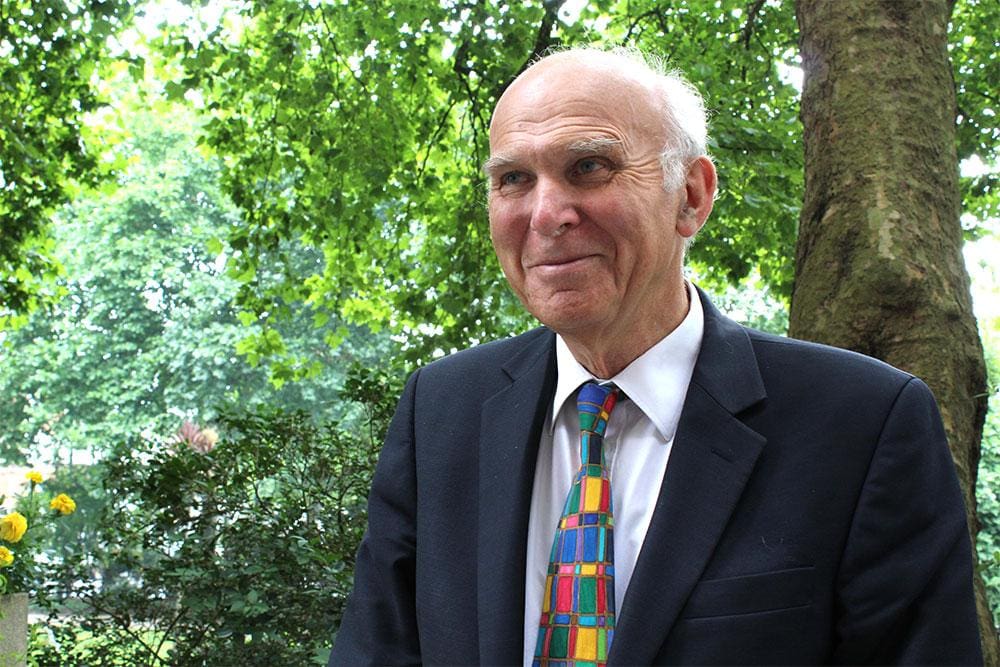
On housing, he advocates a programme of “massive housebuilding,” which is hardly controversial, although he concedes that the problems stretch deeper than a lack of supply. “Monetary policy and loose credit has also greatly contributed to these problems in the housing market,” says Cable. “We need more social housing – the state simply isn’t fulfilling that need at present.”
Cable also worries that levels of personal debt – a defining cause of the 2008 financial crash – are again rising to dangerous levels. “If you look at the personal debt to GDP ratio, it is getting back to 2008-09 levels,” he says, gravely. “Mortgage debt for households borrowing very heavily against an appreciating housing market is becoming a bigger problem – we may well get into negative equity territory, although it’s not as extreme as it was in 2008.”
It is the subject of education, though, that really ignites the man’s passion. Born into a working-class family in York, Cable benefited from a free university education at Cambridge. He agrees that “all the parties have let students down”, but admonishes Corbyn’s pledge to abolish fees and write off student debt as fantasy economics. “I defend what we did,” he says. “British universities were facing a crisis of funding and if you look at the decline of Scottish universities, it is precisely because they lack enough sources of income.” According to Cable, at the time, Peter Mandelson’s solution was to simply shift money from FE colleges to universities, something he found “abhorrent”.
Instead, Cable proposes introducing “learning accounts” – grants for everyone over the age of 18, regardless of whether or not they go to university, to cash in as part payment for a degree or some other form of training, or to be reserved for study in later life. It’s a bold solution to what he describes as “the chronic lack of equity and social mobility in our society”. “The catalysts for unprecedented levels of social inequality are numerous – young working people find it impossible to get on the property ladder, real wage stagnation for almost a decade and the aftermath of the financial crisis have all left their mark,” he says. “I want the UK to become a fairer place, with opportunities for all.”

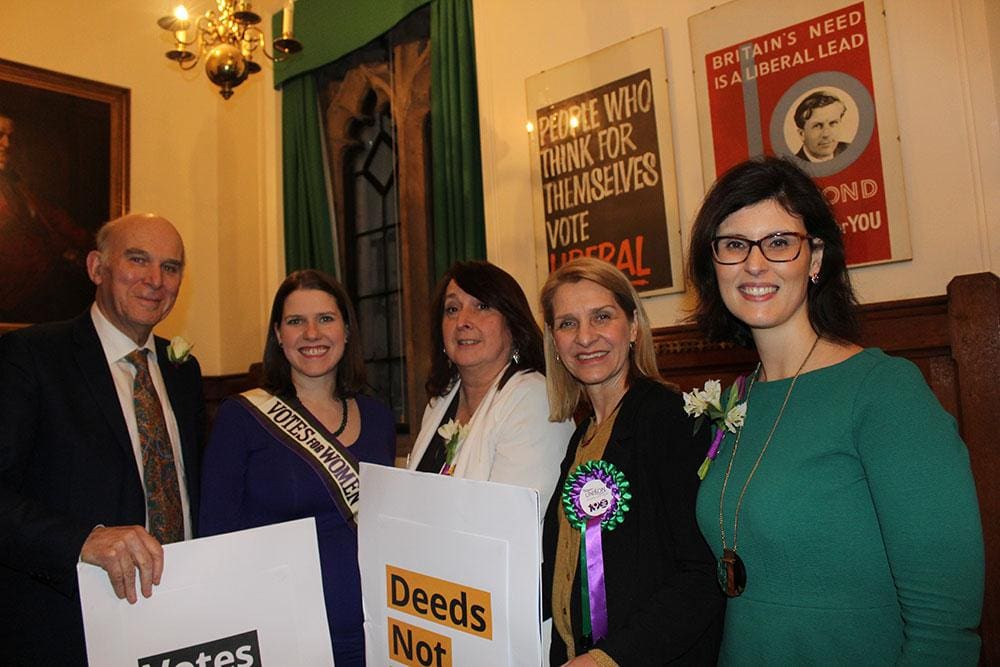
Before policies can be formulated, however, there is a battle to be waged over Brexit. Labour MP Chuka Umunna recently announced his decision to chair an umbrella group of nine organisations that are mounting a push for closer links to Europe. They’re urging a soft Brexit and are calling for the public’s voice to be heard, possibly through an exit deal referendum.
Meanwhile, the PM appears committed to staying the course, even if the cost to the UK economy is dear. “Britain must stay inside the Customs Union and Single Market,” says Cable. “It is simply not in our national interest to sever ties with the EU.”
Does he believe that May will survive long enough to take part in the next general election? “Once Brexit is behind us, I imagine she will resign,” he says. “I’m ready to fight another election, but I don’t think anyone else has the appetite for it.”
Cable’s press secretary then signals his departure, hastening my final question: does he plan to move to the House of Lords if the Lib Dems perform badly? “I’ve actually already been offered a place in the Lords, but I turned it down. “My place is within the party, as an elected Member of Parliament serving in the public interest, a position I intend to maintain as long as I possibly can.” A sentiment not always seen in today’s political climate – a parliamentarian who seemingly puts the nation’s interests before his own




